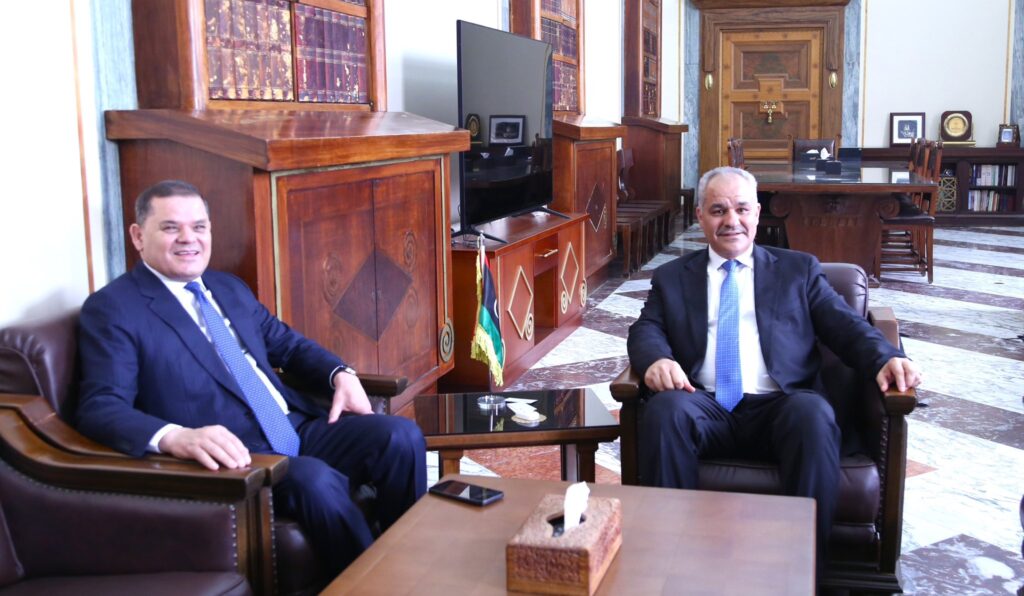Tripoli— “It is necessary to initiate a package of economic reforms in order to raise and improve the standard of living according to a rapid action plan,” the Governor of the Central Bank of Libya (CBL) Naji Issa told the head of the Government of National Unity (GNU) Abdulhamid Dbeibeh on Wednesday, according to a CBL’s statement.
They also talked about the repercussions of public spending on the economic and financial situation and its impact on the strength of the Libyan dinar.
As the Libyan economic and financial crisis deepens, government officials seem to rush for getting a grasp of the painful reality that they have ignored for a long time. They are now in the ‘exploring’ phase of such crisis and it remains to be seen if they implement urgent recommendations from local and foreign concerned experts.
The meeting coincided with the release of the IMF’s release of its “Statement of the 2025 Article IV Mission” on Wednesday 16 April in which it urged Libyan authorities to pursue efforts to establish a unified budget and this should be the “key objective”. It also called on authorities to resist pressure to increase current spending, particularly on salaries and subsidies.
Earlier in the day, the CBL governor held an expanded meeting with the Chairman and members of the Finance Committee and several members of the Libyan House of Representatives during which the deepening economic and financial crisis in the country was discussed.
They also reviewed macroeconomic indicators and exchanged potential reforms to meet the challenges ahead.
Dbeibeh expressed his “gratitude to the Governor for disclosing the actual amount of spending for the first time, stressing that transparency in this matter represents an important step towards financial reform,” according to the statement.
Dbeibeh, who has been running government affairs since 2021, has made important, though sometimes impromptu economic and financial decisions, which did not stick with the budget law and its regulations.
Both PM Dbeibeh and Governor Issa agreed to “coordinate efforts between the government and the CBL to implement a series of economic policy reforms (financial, monetary, and trade) to boost sovereign revenues and improve their collection methods,” it said.
They also agreed to take all necessary measures to support the value of the Libyan dinar, maintain exchange rate stability, and achieve financial sustainability for the country.
